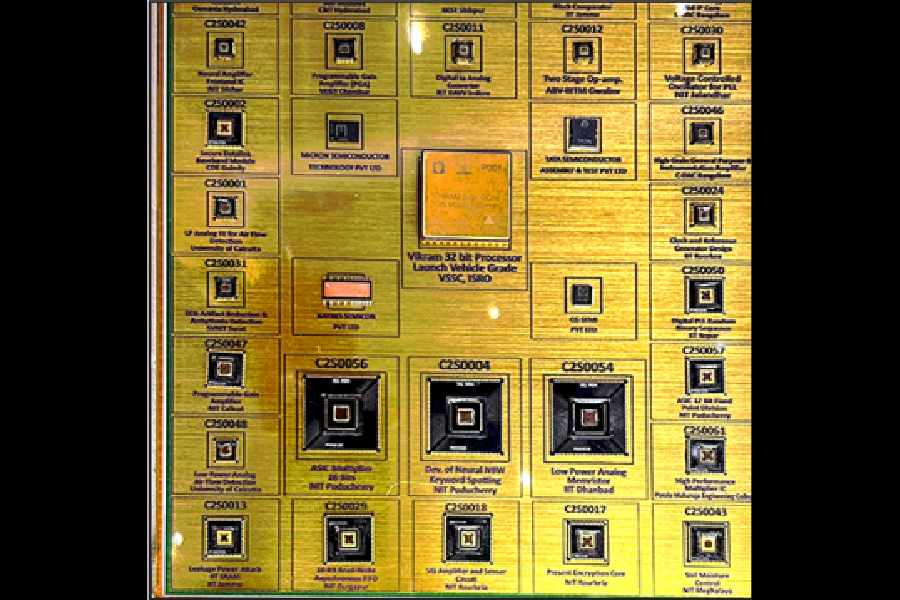Odisha returned to the national spotlight on Tuesday as Union minister of electronics and information technology Ashwini Vaishnaw presented three semiconductor chips made in the state to Prime Minister Narendra Modi.
Two of these chips were developed by NIT Rourkela and one by Parala Maharaja Engineering College (PMEC), Berhampur.
Vaishnaw showcased the chips during Semicon India 2025, a three-day conference in New Delhi aimed at advancing a robust and sustainable semiconductor ecosystem.
Chief minister Mohan Charan Majhi called the launch of the first “Made in India” chip historic. “The high-performance multiplier IC–C2S0061 by PMEC Berhampur and the VG amplifier and sensor circuit–C2S0018 and the present encryption core–C2S0017 by NIT Rourkela, are a matter of immense pride for Odisha,” he said.
Majhi also inaugurated the Odisha Pavilion, saying: “With bold policies, next-generation infrastructure and investment-ready opportunities, Odisha is poised to emerge as the next big hub for semiconductor innovation.”
Last month, the Centre cleared two semiconductor manufacturing projects worth nearly ₹4,000 crore for Odisha. A silicon carbide (SiC) semiconductor plant will involve ₹2,066 crore, while a ₹1,934 crore unit will produce 3D glass. Both will come up at the EMC Park in Info Valley, Bhubaneswar.
Odisha has rolled out customised incentives to attract such units. “The facility will focus on SiC-based devices catering to EVs, renewable energy, railways and defence,” an industries department official said.
NIT Rourkela expressed delight, noting students and researchers had worked on the project for years.










